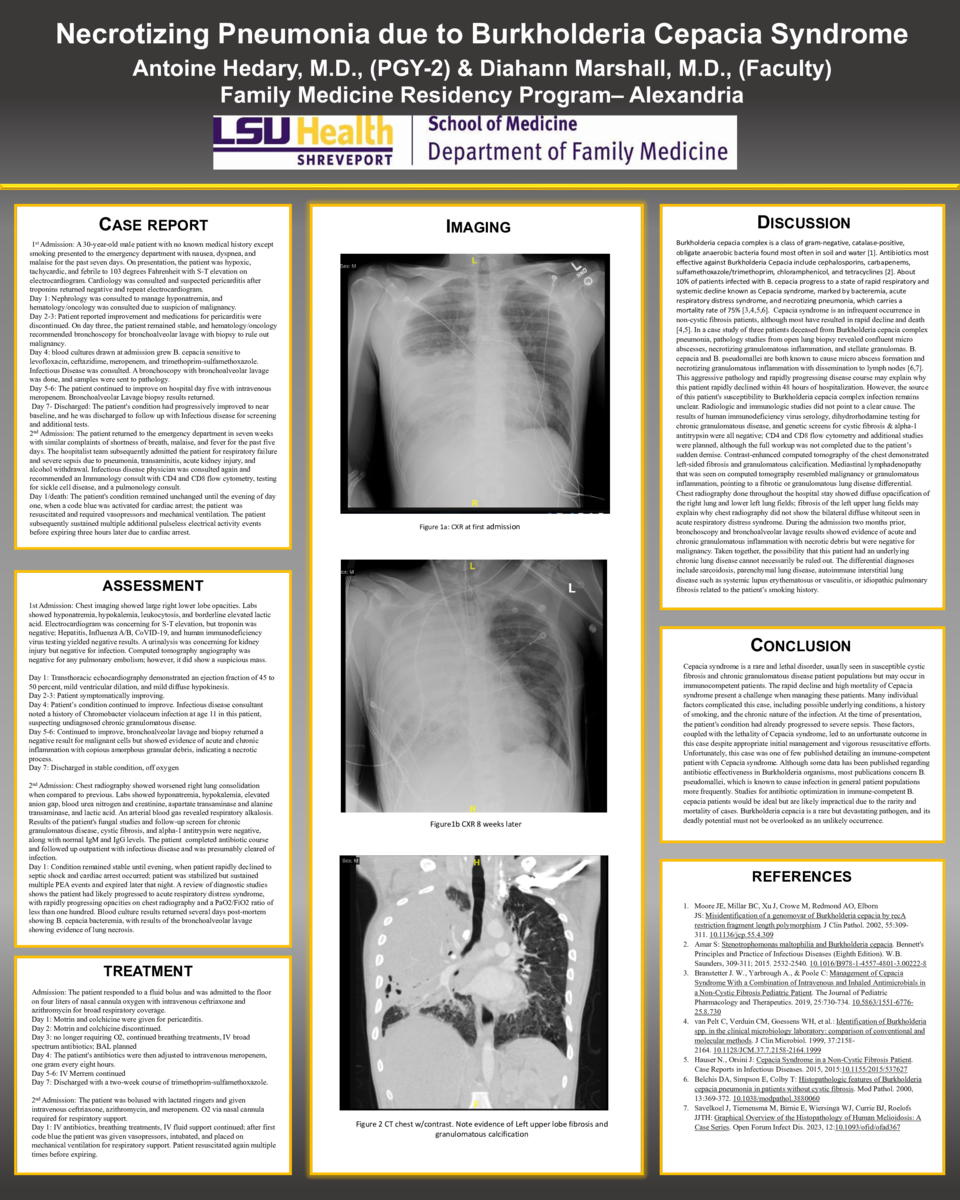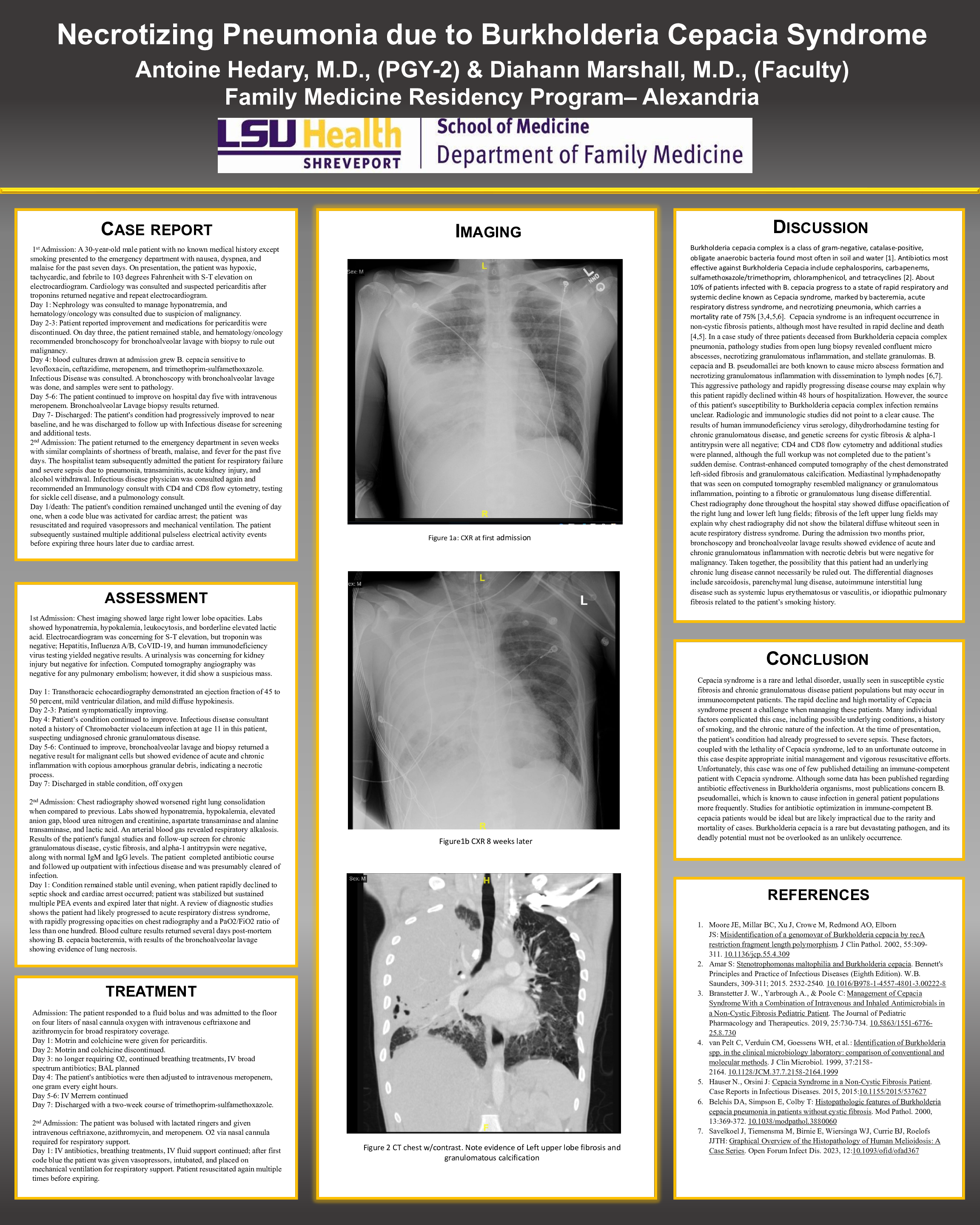Abstract
Cepacia syndrome is a rare and lethal disorder, usually seen in susceptible cystic fibrosis and chronic granulomatous disease patient populations, but may occur in immunocompetent patients. The rapid decline and high mortality of Cepacia syndrome present a challenge when managing these patients. Many individual factors complicated this case, including possible underlying conditions, a history of smoking, and the chronic nature of the infection. At the time of presentation, the patient's condition had already progressed to severe sepsis. These factors, coupled with the lethality of Cepacia syndrome, led to an unfortunate outcome in this case despite appropriate initial management and vigorous resuscitative efforts. Unfortunately, this case was one of few published detailing an immune-competent patient with Cepacia syndrome. Although some data has been published regarding antibiotic effectiveness in Burkholderia organisms, most publications concern B. pseudomallei, which is known to cause infection in general patient populations more frequently. Studies for antibiotic optimization in immune-competent B. cepacia patients would be ideal but are likely impractical due to the rarity and mortality of cases. Burkholderia cepacia is a rare but devastating pathogen, and its deadly potential must not be overlooked as an unlikely occurrence.






